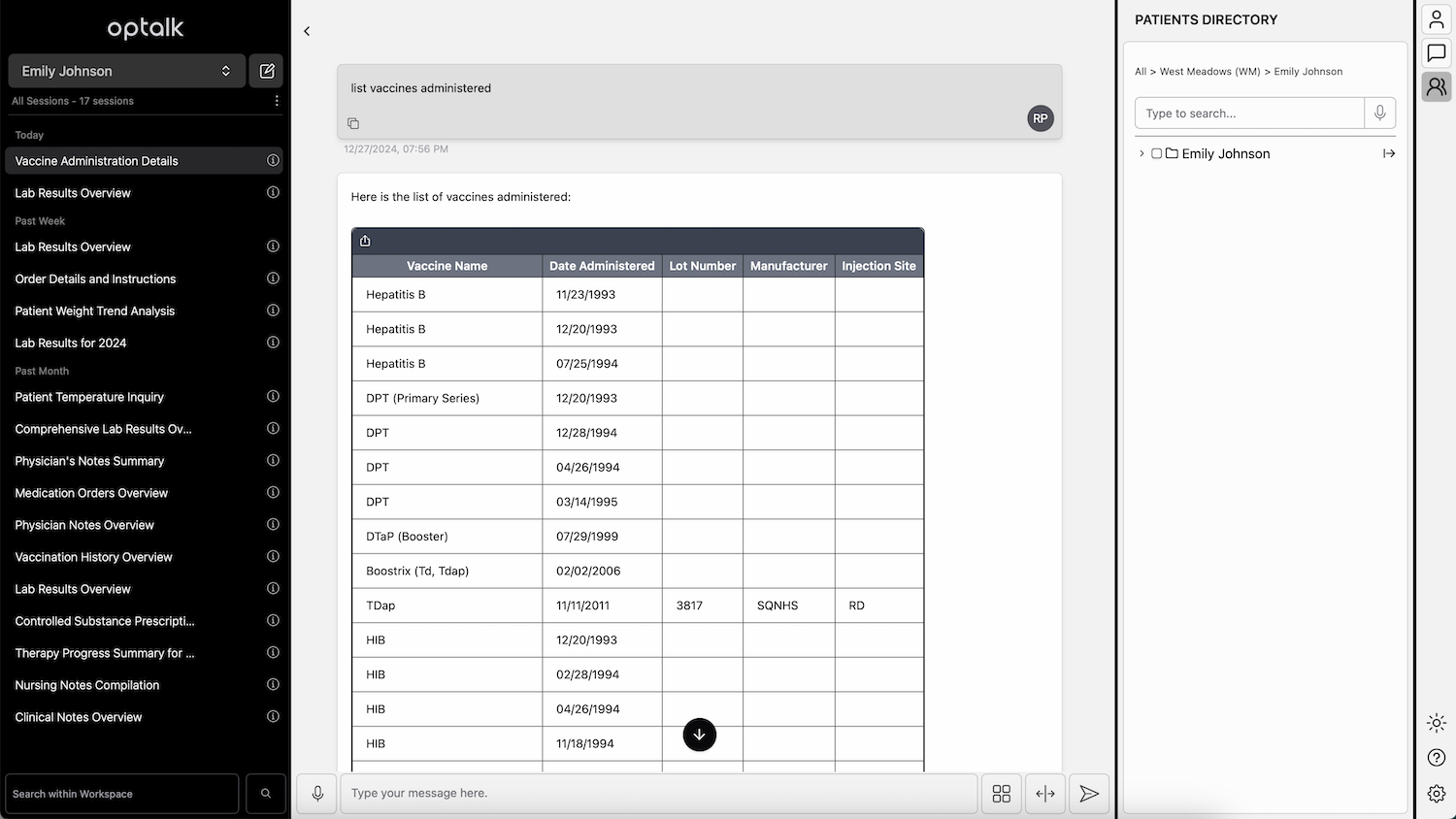 One of the most significant advantages of AI in healthcare is its ability to analyze and organize large datasets efficiently. Machine learning algorithms enable healthcare providers to automate the sorting and retrieval of patient records, ensuring that vital information is readily accessible. This capability is particularly critical in emergency situations, where timely access to accurate data can significantly impact patient outcomes.
One of the most significant advantages of AI in healthcare is its ability to analyze and organize large datasets efficiently. Machine learning algorithms enable healthcare providers to automate the sorting and retrieval of patient records, ensuring that vital information is readily accessible. This capability is particularly critical in emergency situations, where timely access to accurate data can significantly impact patient outcomes.
AI also enhances healthcare personalization by integrating diverse data sources, such as electronic health records (EHRs), genetic information, and real-time health metrics. By analyzing this data, AI systems can generate actionable insights into a patient’s unique health profile, enabling healthcare professionals to develop tailored treatment plans. This ultra-personalized approach improves the effectiveness of care and enhances patient satisfaction.
Furthermore, AI technologies simplify accessing patient records through tools like natural language processing (NLP). These tools allow healthcare professionals to query databases using conversational language, reducing the time spent on administrative tasks and enabling them to focus more on patient care.
Optimoz is at the forefront of this revolution, leveraging AI to empower Intermediate Care Facilities (ICFs) through its innovative Atmospherics AI platform. ICFs are specialized healthcare facilities designed to provide long-term care and support to individuals with intellectual or developmental disabilities who require assistance with daily living and medical care. This cutting-edge solution addresses the unique challenges faced by ICFs, such as managing paper-based records, by utilizing advanced Optical Character Recognition (OCR) technology to digitize patient records into searchable digital formats. By securely storing these records in the cloud, Optimoz ensures data protection, remote accessibility, and seamless collaboration among healthcare providers. Furthermore, the platform’s AI-assisted data retrieval tools enable ICFs to quickly access critical patient information, identify patterns, and derive actionable insights. This enhances decision-making, improves care delivery, and optimizes operational efficiency for individuals with complex medical needs.
 Beyond operational efficiency, AI also plays a pivotal role in personalizing care. By analyzing patterns within patient data, the Atmospherics AI platform empowers healthcare providers to tailor treatment plans to individual needs. This level of personalization is particularly valuable for ICFs, where patients often require specialized and ongoing care.
Beyond operational efficiency, AI also plays a pivotal role in personalizing care. By analyzing patterns within patient data, the Atmospherics AI platform empowers healthcare providers to tailor treatment plans to individual needs. This level of personalization is particularly valuable for ICFs, where patients often require specialized and ongoing care.
Moreover, the adoption of AI in healthcare must be approached responsibly. Optimoz emphasizes the importance of ethical AI use, ensuring that its solutions adhere to rigorous benchmark metrics and validation procedures. Optimoz ensures that its technology delivers reliable, accurate, and equitable results by addressing algorithmic bias and maintaining high standards for AI-generated outputs.
In conclusion, harnessing artificial intelligence to enhance patient record accessibility and quality represents a transformative advancement in healthcare. AI can revolutionize healthcare delivery by improving data management efficiency, personalizing care, and safeguarding sensitive information, ultimately leading to better patient health outcomes.
In conclusion, integrating AI into healthcare systems is no longer a futuristic concept but a present-day reality with far-reaching benefits. Optimoz’s Atmospherics AI platform is a testament to how AI can empower ICFs to overcome traditional challenges, improve collaboration, and deliver more effective, personalized care. As healthcare continues to evolve, the responsible and innovative use of AI will remain a cornerstone of progress, ensuring that patients receive the best possible care. In contrast, healthcare providers operate with maximum efficiency.
